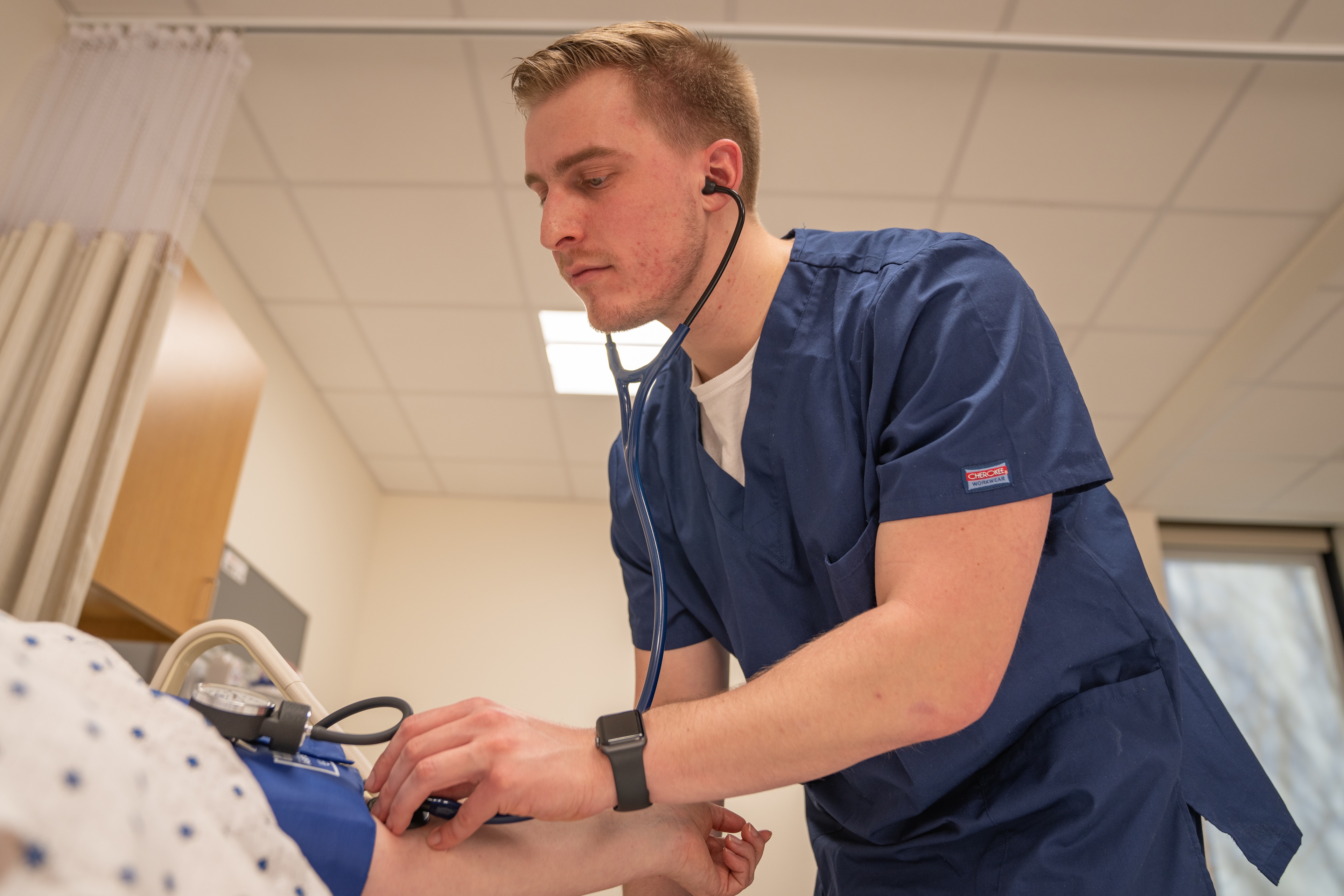
From Ohio to Thailand: BGSU researchers explore mindfulness partnership to transform the lives of nurse aides
Project is funded by $260K grant from Ohio Bureau of Worker’s Compensation research program
By Laren Kowalczyk ‘07
In a cross-cultural collaboration, Bowling Green State University psychologists have partnered with psychologists at two universities in Thailand to develop a novel mindfulness therapy rooted in Eastern principles and are studying its effectiveness in reducing stress and injury among nurse aides both in Ohio and internationally.
The project is funded by a $260,000 grant from the Ohio Bureau of Worker’s Compensation Occupational Safety and Health Research Program and aims to provide nurse aides with skills to better cope with the mental, emotional and physical demands of their job.
Nurse aides experience some of the highest rates of work-related psychological and physical injuries of any profession, including high levels of verbal and physical aggression from patients, families and co-workers, said Dr. William O’Brien, a BGSU psychology professor and principal investigator on the project.
“Nurse aides receive very little psychological coping training,” O’Brien said. “They’re trained in how to use a lift, transfer patients and other necessary job functions. We’ve learned from previous studies that they know how to do their jobs properly, but they can get very busy and overwhelmed, which can cause them to rush, not seek assistance or improvise. In turn, that can lead to work-related injuries or cause patients to react negatively."
In a 2019 study, O’Brien introduced nurse aides to Acceptance and Commitment Therapy — a cognitive-behavioral therapy that has successfully been used to treat anxiety, depression, stress, addictions and other conditions — and proved its effectiveness in improving psychological well-being and reducing days lost due to injury.
Although ACT showed promising results, O’Brien determined that it and many other Western mindfulness-based interventions lacked critical and historical Eastern elements connected to well-being, potentially lowering the treatment's effectiveness.

New mindfulness intervention
That observation spurred the ongoing development of a new therapy called Eastern Perspectives-added Acceptance and Commitment Therapy or EPACT.
BGSU partnered with mindfulness experts in Thailand, Dr. Teerawan Teerapong, Dr. Chatwiboon Peijsel and Dr. Tanaphong Uthayaratana at Chiang Mai University, and Dr. Jennifer Chavanovanich, Dr. Somboon Jarukasemthawee and Dr. Kullaya Pisitsungkagarn at Chulalongkorn University, to create and refine EPACT.
The new mindfulness-based cognitive-behavioral intervention focuses on being present in the moment, “letting go” of stressful emotional experiences and allowing thoughts to flow through the mind rather than trying to control them.
The therapy also includes accepting suffering as an inevitable aspect of life, self and other compassion, impermanence, non-self attachment, common humanity and promoting good.
“The Eastern understanding of life guides the direction of mindfulness, which promotes an awareness of how the mind can get caught up in a vicious cycle of suffering by thinking negatively about the past and future rather than responding without judgment to events in the present moment,” Uthayaratana said. “Learning mindfulness can lead to psychological well-being and avoid being looped back into suffering.”
Dr. Daniel Maitland, associate psychology professor at BGSU and researcher on the project, said in addition to increasing on-the-job performance and well-being of nurse aides, the social justice component of the project is equally as important.
"There’s really something special about how we’re approaching this project from a perspective of bringing in the knowledge we know works while giving credit where credit is due," he said. “We’re incorporating techniques that have been shown to work for thousands of years."

Beginning the first phase
The team is finalizing the protocol for the study and plans to begin a randomized clinical trial in the fall.
O’Brien said the goal is to work with 250 nurse aides at nursing homes in Ohio, measuring rates of injury, psychological distress, post-traumatic stress disorder symptoms, high-frequency heart rate variability and mindfulness before and after EPACT therapy.
This study is also believed to be the first to use heart rate variability to predict occupational injuries in healthcare workers. O’Brien said previous studies indicate its effectiveness as a predictor of occupational stress, PTSD and risk for injury among athletes.
Researchers will provide EPACT therapy to nurse aides during three two-and-a-half-hour sessions, with follow-up sessions held three months after the initial treatment.
The second phase of the study includes broadening its reach beyond Ohio. In addition to mirroring the study with nurse aides in Thailand, O’Brien said the team will educate healthcare facility trainers on EPACT who can then introduce it into their facilities.
Based on results from the study, O’Brien said an additional goal includes incorporating EPACT therapy into the curriculum of nurse aide education to provide them with enhanced coping and stress management skills before they begin their jobs.
“It’s been incredible interfacing with people from Thailand to develop cross-cultural collaborations,” O’Brien said. “We hope to continue these ongoing international collaborations focused on mindfulness-based research while creating a new approach to global mental health.”
Related Stories
Media Contact | Michael Bratton | mbratto@bgsu.edu | 419-372-6349
Updated: 08/08/2023 02:47PM




